Most Common Pests In Cannabis: Powdery Mildew
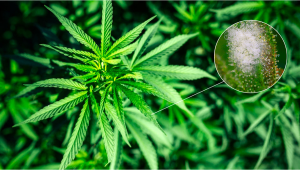
- 1. What is powdery mildew?
- 2. What does powdery mildew look like?
- 3. Where is powdery mildew found?
- 4. What does powdery mildew do?
- 5. Powdery mildew symptoms
- 6. How to prevent it?
- 7. How to deal with it?
- 8. In conclusion
Powdery Mildew comes from different types of fungus, it slowly starts developing on your cannabis leaves and if left without care for too long can completely take over your plant. Thankfully, there are various steps that growers can take to prevent it from taking hold of their cannabis seeds in the first place. Above all else, high levels of humidity allow this pathogen to gain a foothold; tight crowding of plants and overwatering also play a fundamental role in the onset of this disease.
1. What is powdery mildew?
Powdery mildew is a type of fungus that infects the leaves of your cannabis plants. The fungus has been known to interfere with photosynthesis and create issues as grave as ruining entire crops in no time. Cannabis cultures are infected with powdery mildew through the spores that travel in the air until they reach the plant.
Remember that these fungi can stick to all types of surfaces, including a human or an animal and it can transfer to your cannabis plants very fast. To avoid this, make sure that you’re clean and that your space is not prone to infections.
2. What does powdery mildew look like?
Powdery mildew is usually milky white and usually fluffy, similar to fuzz. These fungi form round patches on the leaves.
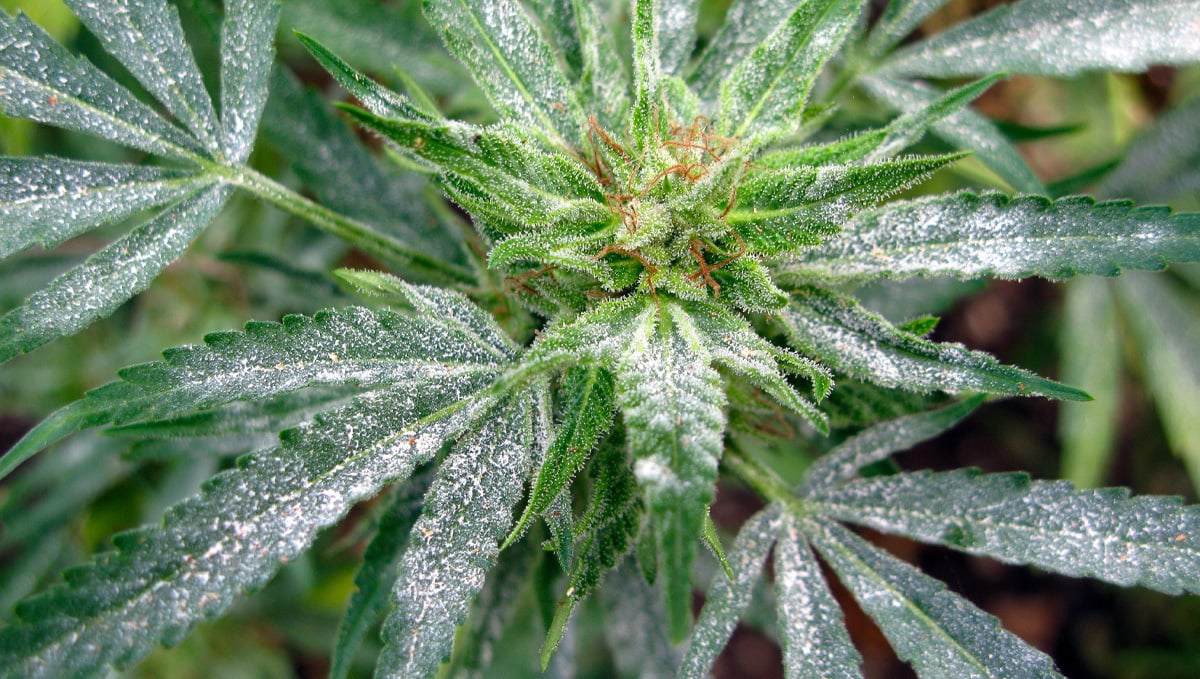
It’s easy to notice the signs of powdery mildew infestations due to the way it develops on the surface of the plant.
3. Where is powdery mildew found?
You can usually find powdery mildew on the leaves of your cannabis. This type of infection spread all over the plant so you might notice white powder over the surface of the buds as well. The way powdery mildew affects the buds is by causing rot and making your harvest unusable.
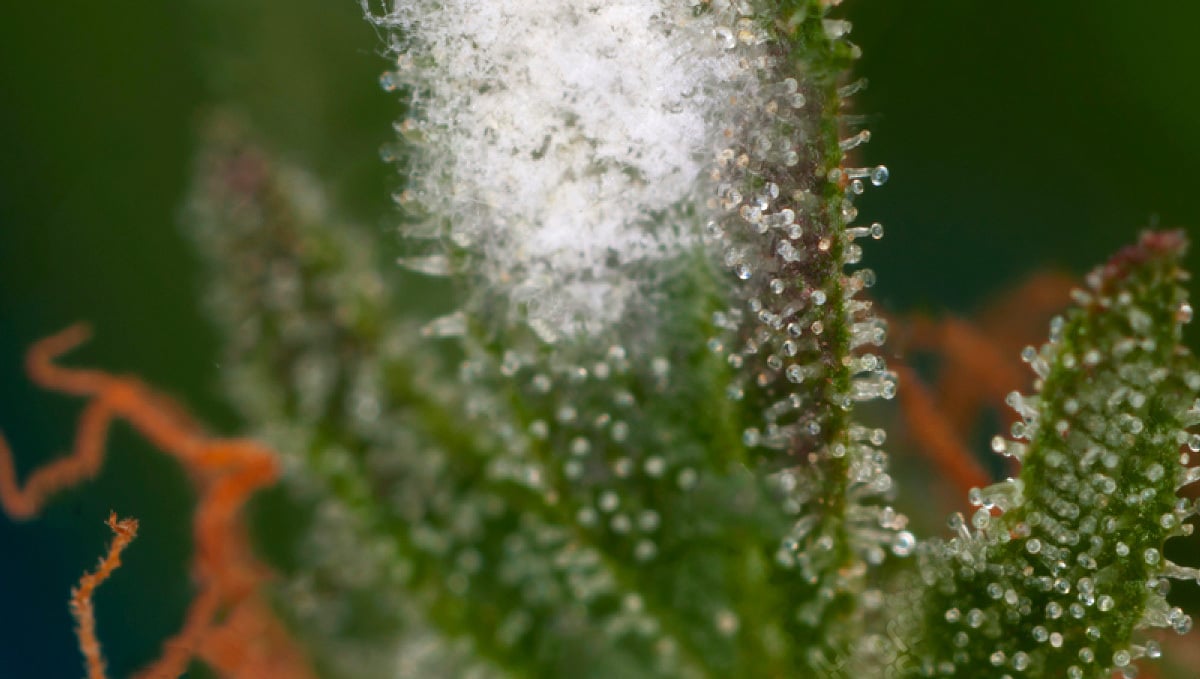
Due to the risk of these infestations it’s essential you monitor your plants on a daily basis. By checking your marijuana plants, you can prevent the spreading of powdery mildew to all of the buds and you’ll still get a harvest by the end of the growing time.
4. What does powdery mildew do?
Powdery mildew basically stops photosynthesis and feeds on the nutrients found in the leaves of the plant thus destroying the health of the plant. The cannabis plants can get infected with conidia spores that travel through air and mycelial mats. Powdery mildew starts on the surface of the marijuana leaves where the sexual cycle begins and allows the development of tiny hyphae (hairs that grow in a humid environment).
Powdery mildew basically stops photosynthesis and feeds on the nutrients found in the leaves of the plant thus destroying the health of the plant. The cannabis plants can get infected with conidia spores that travel through air and mycelial mats. Powdery mildew starts on the surface of the marijuana leaves where the sexual cycle begins and allows the development of tiny hyphae (hairs that grow in a humid environment).
5. Powdery mildew symptoms
A powdery mildew infestation is not obvious in the first days it reached the marijuana plants. As it develops and grows, it starts creating white spots on the surface of the leaves. When it spreads and develops the spores will take over even more of the leaves and reach even the buds.
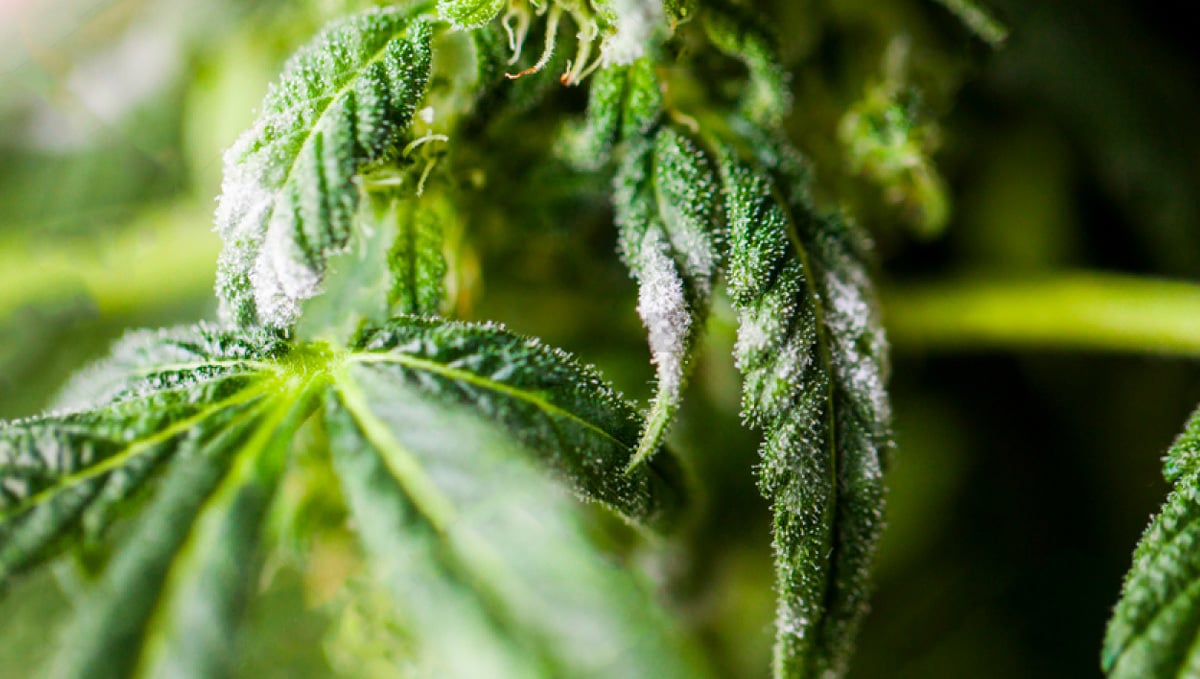
If the fuzzy filaments reach the buds, then there are big chances they’ll rot and become unusable. A sign of infestation at the level of the buds is a bad smell and brown color all over them.
6. How to prevent it?
The main things you need to look at when setting up your grow space are ventilation and humidity. As long as your space has good airflow and the humidity levels are kept in check, then you shouldn't have any major issues.
Because this is a fungus, it thrives in humid places where there’s no airflow to evaporate the water.
This fungus thrives when the humidity is high like in the seedling stage so to prevent it, avoid temperature fluctuations and maintain a constant of minimum 70°F (20°C) and 85°F (30°C) during vegetative and no more than 80°F (26°) and no less than 65°F (18°C) during flowering.
If you’ve encountered this type of powdery mildew infestation in your grow space before, then it’s time to make some changes to your grow room setup. Use monitoring devices like a thermometer and a hygrometer to make sure the temperature and humidity levels are constant. Next,
Fans, dehumidifiers and heaters keep the air flow constant and the moisture levels in check.
7. How to deal with it?
The easiest way to deal with powdery mildew is during the early stages of infestation. However, before you start using any product, it’s essential you remove the plants with obvious signs of powdery mildew from the growing space.
Next, there are a few effective solutions you could use to take care of the rest of the plants from your garden. If your plants are infected during the vegetative stage, the neem oil is a great solution.
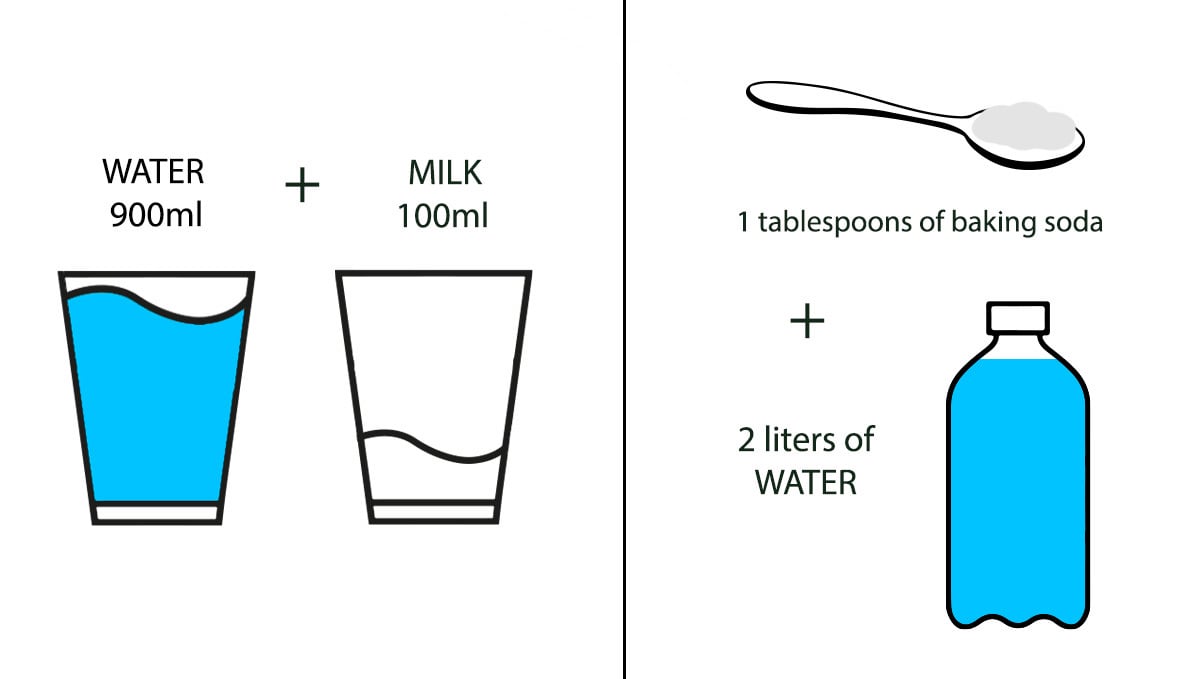
For the flowering stage, the best way to treat this fungus is by making a mixed 900/100 ml ratio of water and milk and spray it over the leaves. Another option would be adding 1 tbsp of baking soda to 2 L of water.
Spray these mixtures over the leaves in conservative amount so you don’t do more damage to your crop. Also, keep in mind that if the infestation has taken over all of the plants and the leaves and buds look bad, then it might be best to restart from scratch.
8. In Conclusion
If your plants are infected by powdery mildew, then be fast and don’t let it impact all of the other plants you have. These types of pests can be dangerous if left untreated so you need to remove the affected cannabis plants as soon as you notice them.








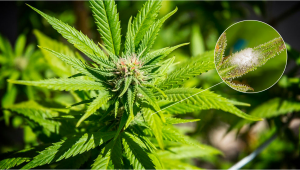
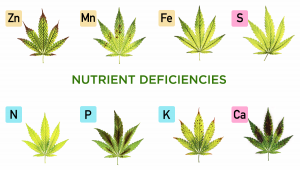


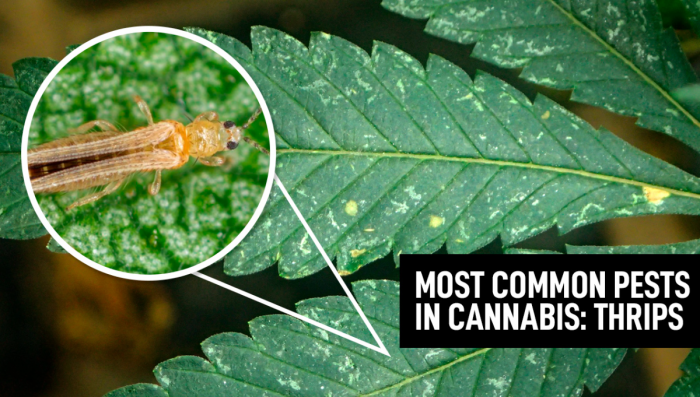
Comments